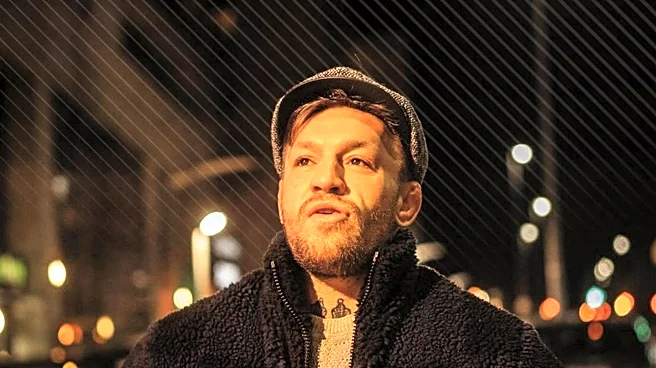What's Happening?
Joe Swash, a well-known actor and TV presenter, has released a new BBC documentary titled 'Joe Swash: Forgotten Young Dads,' which explores the challenges faced by young fathers. Swash, who became a father at 24, shares his personal experiences of feeling
unprepared and unsupported during his early years of fatherhood. The documentary features interviews with young fathers aged 18 to 22, highlighting issues such as social stereotypes and the lack of parental support services. Kevin Stoodley, founder of North East Young Dads and Lads (NEYDL), a charity supporting young fathers, also contributes to the documentary, discussing the stigma and judgment young dads often face.
Why It's Important?
The documentary sheds light on the often-overlooked struggles of young fathers, who are frequently stigmatized and perceived as irresponsible or absent. By bringing attention to these issues, Swash aims to challenge societal stereotypes and advocate for better support systems for young dads. The film emphasizes the need for positive male role models and community support to help young fathers navigate their roles. This initiative could lead to increased awareness and potentially influence public policy to provide more resources and support for young fathers, ultimately benefiting families and communities.
What's Next?
The documentary's release may prompt discussions among policymakers, social services, and community organizations about the need for targeted support for young fathers. There could be calls for increased funding and resources for programs like NEYDL, which provide essential support to young dads. Additionally, the documentary might inspire other media projects and public campaigns to address the stigma surrounding young fatherhood and promote positive role models.
Beyond the Headlines
The documentary also touches on broader societal issues, such as toxic masculinity and the importance of redefining what it means to be an 'alpha male.' By promoting nurturing and supportive fatherhood as a form of strength, the film challenges traditional gender roles and encourages a cultural shift towards more inclusive and supportive family dynamics.















